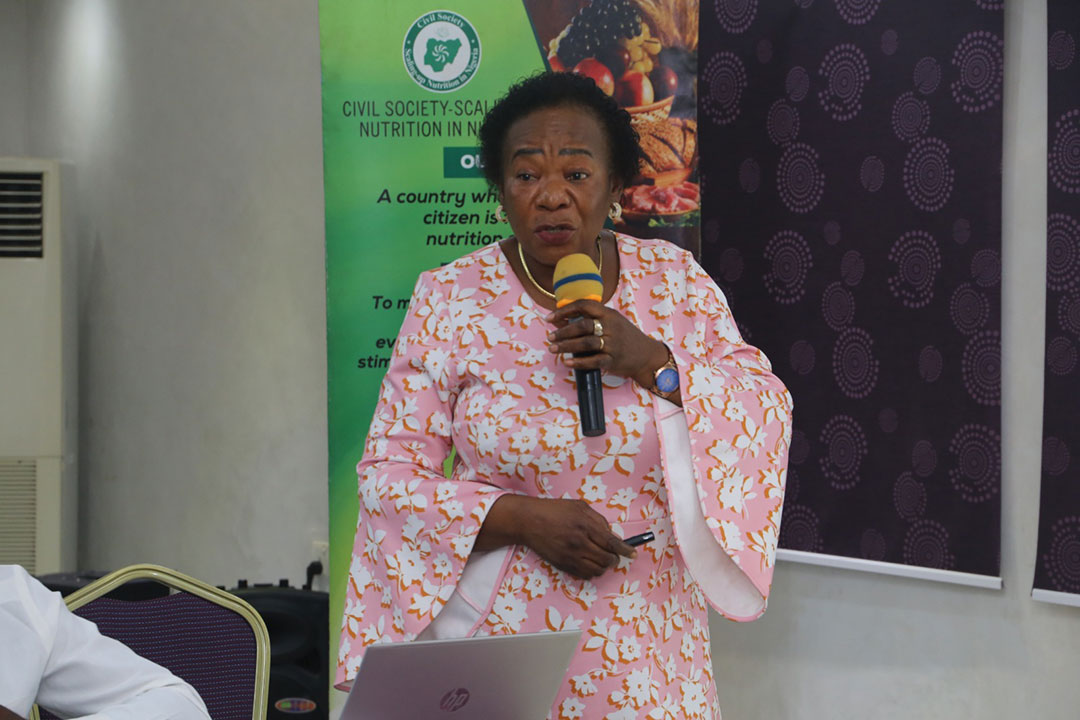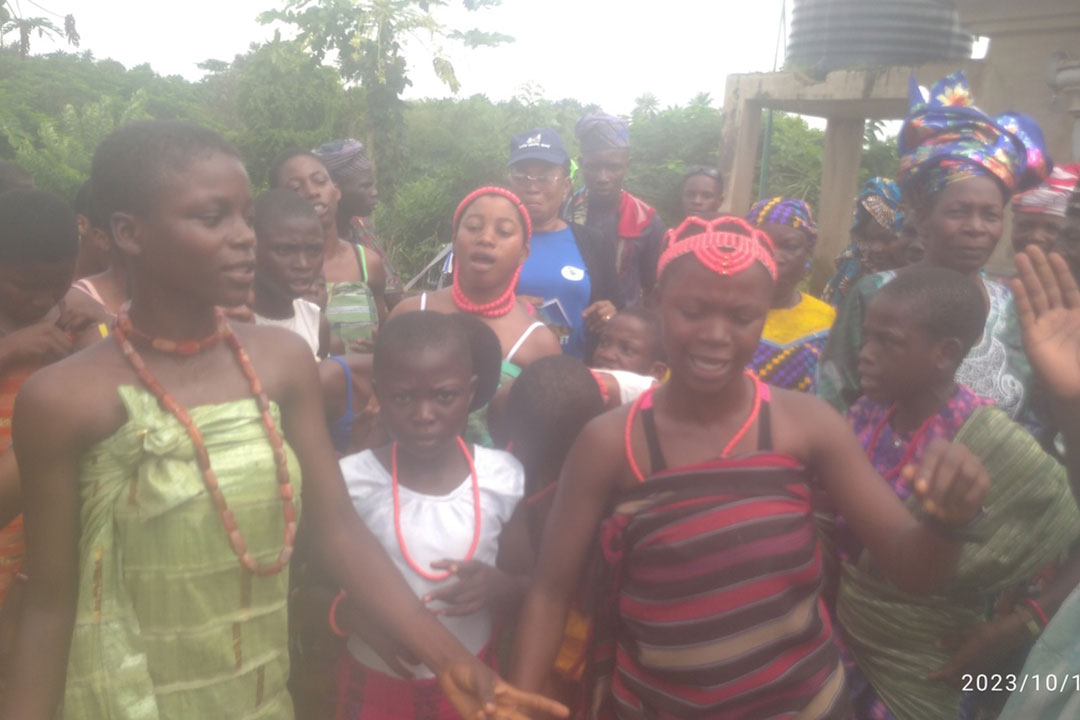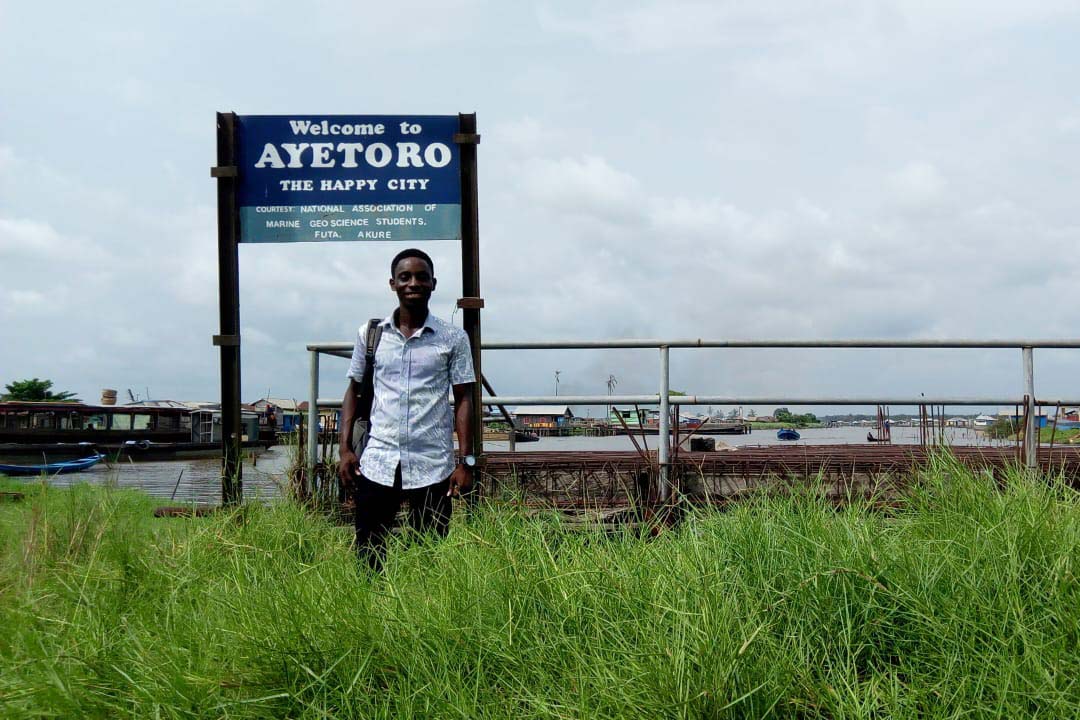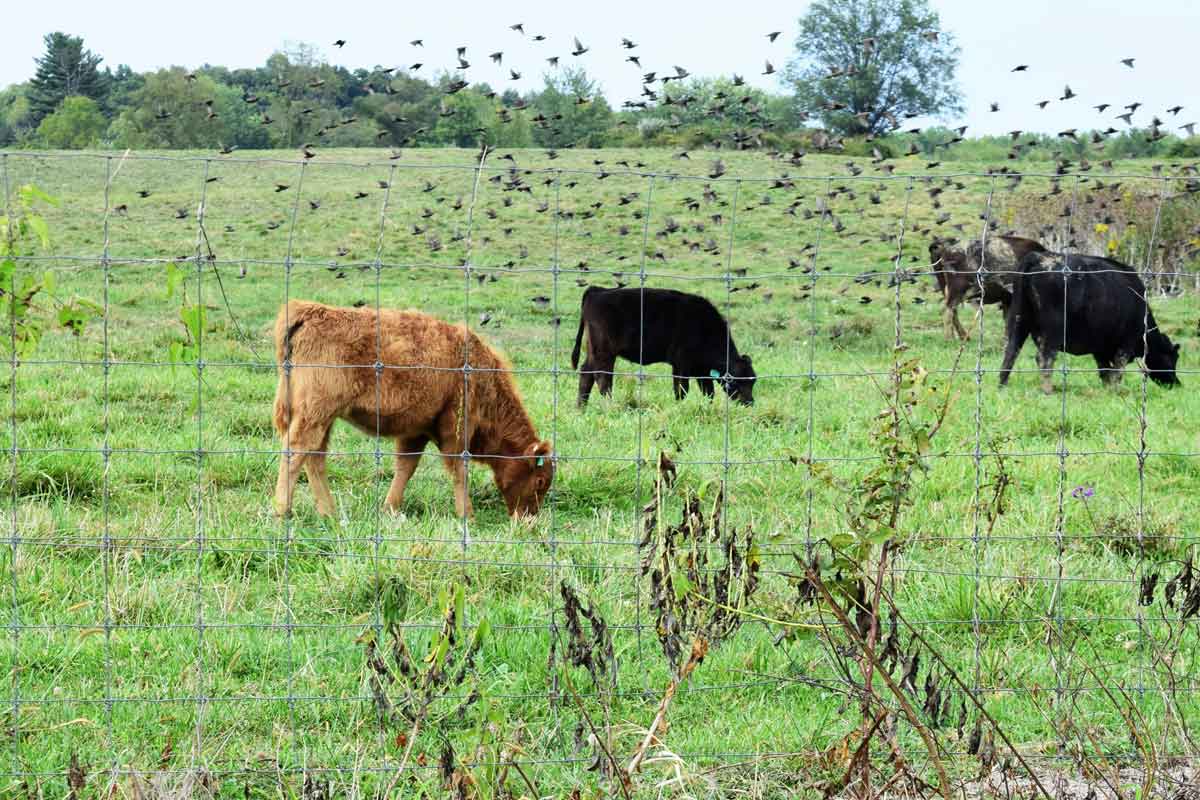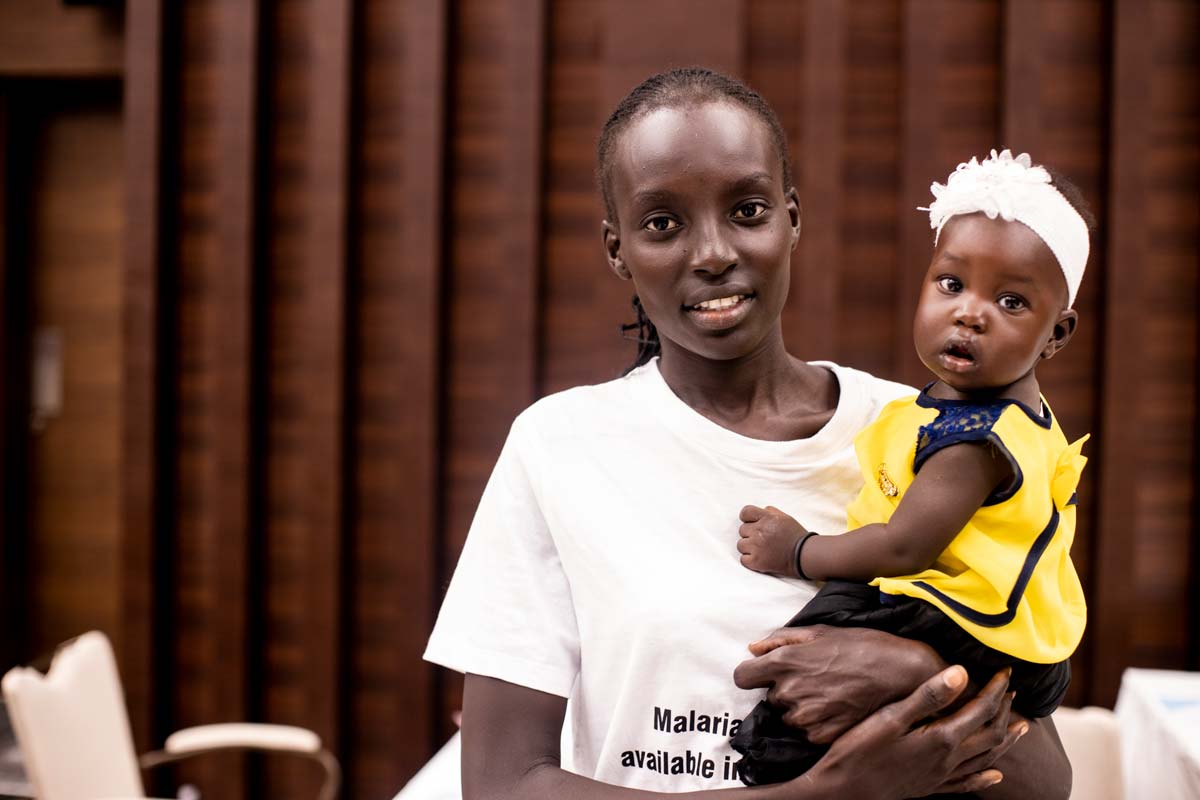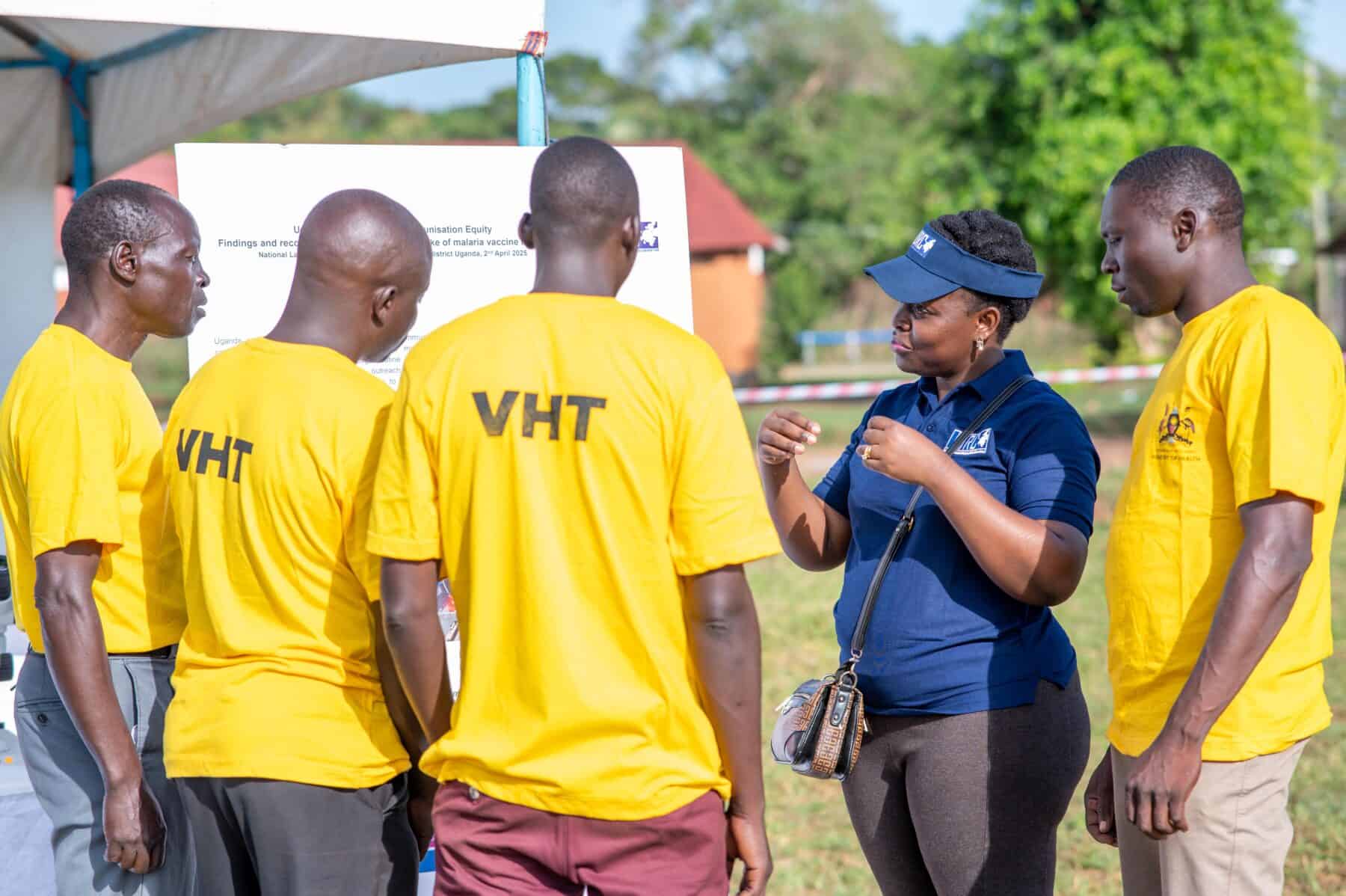Lagos aims to reach 1 million girls with cancer-blocking HPV shot by year’s end
As Lagos’s HPV vaccine roll-out transitions out of campaign mode towards routine immunisation in Lagos state, Royal Ibeh catches up with Dr Adetola Akinpelu, coordinator of the immunisation programme at the state Primary Health Care Board.
- 6 August 2024
- 6 min read
- by Royal Ibeh
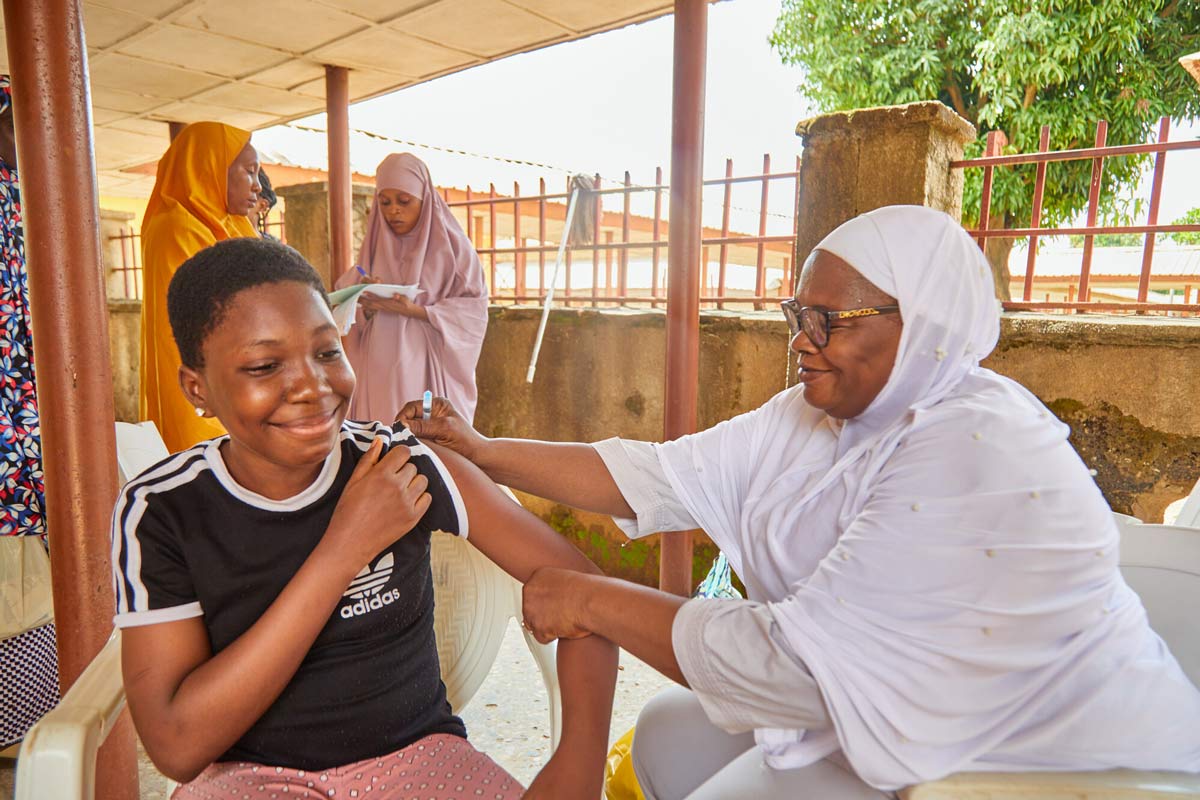
Damilola John, a schoolgirl from Lagos, received her human papillomavirus (HPV) vaccine at the Eti-Osa Local Government Primary Healthcare Centre, a few months before she turned 14. “My mum told me that the virus could lead to cancer if not treated on time. My mum also told me that if I get vaccinated now, it will protect me from cervical cancer,” she said.
Speaking to visiting journalists, Damilola explained that her mother works at the health facility, which is why, in her words, her mother is “enlightened” about the importance of the vaccine. Damilola, too, has educated herself.
“I have taken the [HPV] vaccine, and nothing is wrong with me. Nothing will be wrong with me in the future.”
- Damilola John, aged 13
The vaccine has been made available free of charge for all of Damilola’s cohort. Lagos state commenced its HPV immunisation campaign, part of a phased nationwide introduction, on October 30, 2023, providing vaccine to girls aged 9-14 years to head off the next generation of cervical cancer cases.
But not all of Damilola’s friends have been vaccinated, as some girls’ parents have refused their permission. VaccinesWork spoke with Adetola Akinpelu , immunisation programmes coordinator at the Lagos State Primary Health Care Board, to learn more.
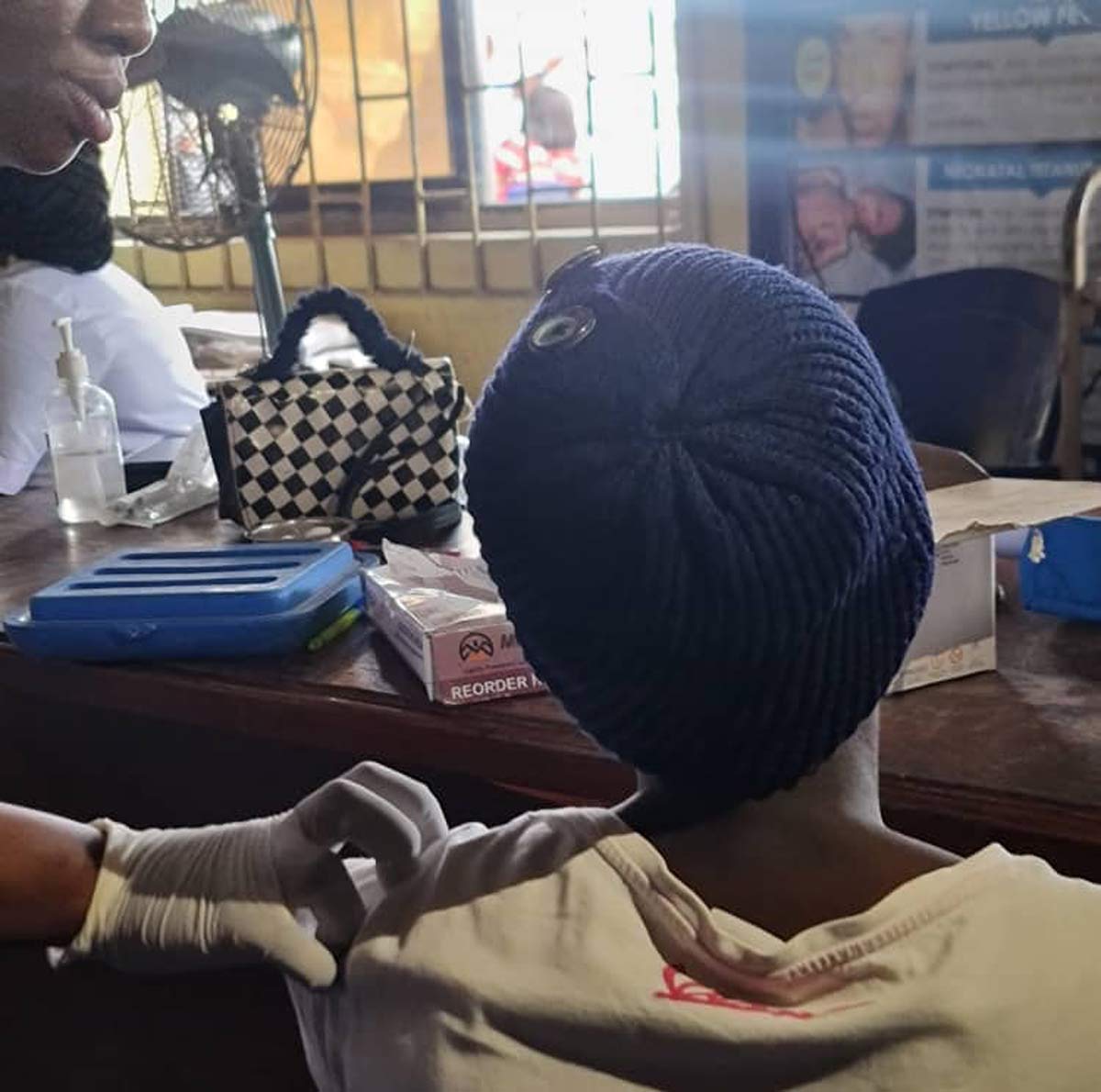
Closing window
“The HPV Gardasil vaccine is expensive and out of the reach for most parents in Lagos,” said Akinpelu. “The state government is providing this vaccine free of charge. One of the reasons why Gardasil HPV vaccine was selected is the fact that it is a one-dose vaccine that offers lifelong protection.”
Sadly, this window will not remain open forever, as the state will be narrowing eligibility to girls aged nine starting from 2025, as the kick-off campaign gives way to “routinisation” – immunisation of eligible girls as part of the regular Nigerian vaccination schedule for children and adolescents.
“Though we have concluded the HPV vaccination campaign and we have integrated it along with other immunisation programmes to further encourage uptake before it will be fully routinised, our message to parents and guardians is that they should ensure that their girls within the eligible age bracket [9–14] are vaccinated at any public hospitals in the state [before 2025],” Akinpelu said.
Building the campaign
Getting this far required an intense effort, Akinpelu recalls. In June 2023, the Lagos state government convened a team of experts to discuss the level of the state preparedness for a smooth roll-out of the HPVV campaign. Strategies were nailed down, logistics were planned.
“The strategies for the HPVV introduction exercise are fixed [and outreach] posts at strategic locations and at schools in all government facilities in all the 20 Local Government Areas (LGAs) and wards, including all the 37 Local Council Development Areas of Lagos state. We also mapped out the number of girls between the ages of 9–14 years in Lagos state.” The total number of eligible girls was 1,062,427, he said.
“We went to every street in the state, every school, church, mosques and every important place. We set up technical working groups to cover several areas. We commenced training of the people that are going to do the job. We selected people for each local government area and trained them as well,” he continued.
Despite those efforts, Lagos State was able to reach 478,528 girls with the vaccine – just under half of the campaign target.
Online rumour mill
Areas like Eti-Osa, Epe, Ibeju-lekki, which have a reputation for being home to the elite, had the lowest vaccination rates. For instance, the state government targeted eligible 33,920 girls in Eti-Osa LGA, but just 8,742 girls were vaccinated with the HPV vaccine.
“We carried out investigation on the reason for the low uptake of the HPVV, especially in areas where we thought there would be increased uptake of the vaccine, due to their level of educational background.
“Based on the state’s findings, it was learnt that there were widespread rumours across popular traditional and social media platforms. The elites have access to smartphones and internet. They read these negative stories everywhere they turn to. Also, the delay in addressing the rumours at the initial stage also led to denial of access of the vaccination teams into schools and gaining of access into gated estates and apartments by the out-of-school mobilisers team, which was a big hurdle,” Akinpelu stated.
The spreading misinformation took a few different forms, he said, including forwarded WhatsApp voice notes and an evangelist who organised a webinar at which he agitated against the HPVV by fearmongering about government coercion.

A million girls by year’s end
After identifying the root cause of the low uptake of the vaccine at the initial stage, Akinpelu disclosed that the state government swiftly embarked on a massive awareness campaign. “We began sending the right message to counter the rumours,” he said.
Now state has its sights set firmly on reaching a million girls with the HPV vaccine by the end of 2024.
To get there, Akinpelu says, “continuously” engaging with schools, religious bodies and influential members of the communities to improve their knowledge of cervical cancer and the need for the HPV vaccine will be crucial. The programme will also be aiming to quickly resolve rejections at the LGA level, and will integrate the HPV vaccine into all outreach programmes and PHC activities going forward.
“Lagos had a great plan that was marred by rumours at the initial stage. [...] There are human factors that can make the best-laid plans not go as you think.”
- Dr Adetola Akinpelu, Lagos Primary Health Care Board
While Damilola’s friends are among the over 500,000 girls who are yet to be vaccinated with the HPVV, her message to her friends’ parents is simple: “I have taken the [HPV] vaccine, and nothing is wrong with me. Nothing will be wrong with me in the future. The vaccine has been certified safe by World Health Organization (WHO), so it is safe for use. I appeal to you, to allow your daughters take the vaccine, so we can have a future of girls that are free from having cervical cancer.”
Eyes on the future
Nigeria-wide, the phased HPV vaccine introduction campaign aimed to reach about 14 million girls aged between 9 and 14. Lagos, along with 15 other states in Nigeria that began vaccinating last October, comprised Phase I.
This past May saw the launch of the second wave, which included, Borno, Cross River, Delta, Ebonyi, Edo, Ekiti, Gombe, Imo, Kaduna, Katsina, Kebbi, Kogi, Kwara, Niger, Ondo, Oyo, Plateau, Rivers, Sokoto, Yobe, and Zamfara states.
Have you read?
Phase II has also since wrapped up, with states largely posting impressive results and high coverage ra tes. Many of them learned from pathfinder Lagos’s example.
With campaign-mode in the rearview mirror, the focus across Nigeria’s immunisation programmes is shoring up routine vaccination.
Having successfully tackled HPVV-related challenges, Akinpelu offers his perspective. “Lagos had a great plan that was marred by rumours at the initial stage. [...] There are human factors that can make the best-laid plans not go as you think.”
The lesson? "Don’t be behind these rumours, rather be proactive enough to come up with strategies to overcome these biases and rumours,” he advised.
